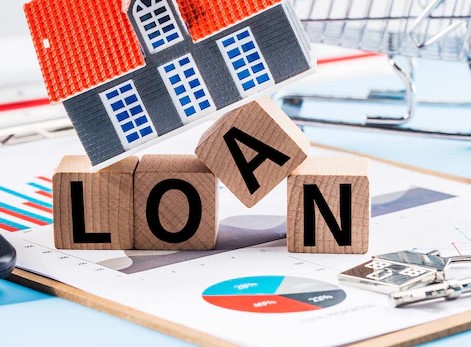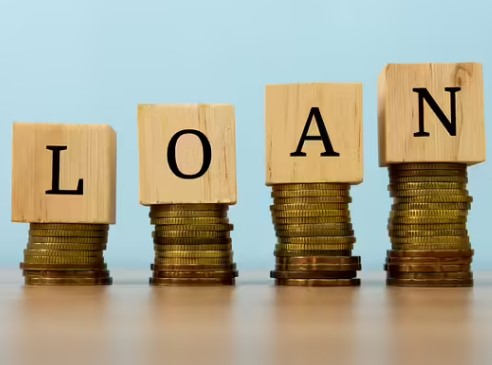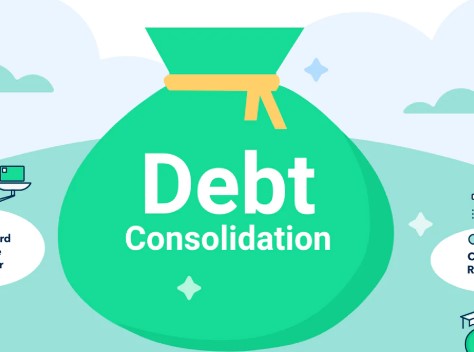Buying a home is one of the most significant financial decisions many people make in their lifetime. Whether you’re a first-time buyer or looking to upgrade, securing the right mortgage loan is crucial. Mortgage loans come in a variety of options, each with its own benefits and drawbacks. Understanding the different types of home loan options can help you make a more informed decision based on your financial situation and long-term goals.
In this article, we’ll explore the top five loan options for homebuyers, outlining their features, eligibility requirements, and advantages, so you can choose the one that best fits your needs.
1. Conventional Loans
What Are Conventional Loans?
Conventional loans are the most common type of mortgage. They are not insured or guaranteed by the federal government, unlike some other loan types, such as FHA or VA loans. Conventional loans typically have stricter requirements but also offer a wider variety of terms, including fixed and adjustable-rate options. These loans can be used for both primary residences and investment properties.
Key Features:
- Down Payment: Conventional loans often require a down payment of at least 3% for first-time homebuyers, but for others, the minimum can be 5% to 20%.
- Credit Score: Lenders generally require a credit score of 620 or higher. However, the higher your score, the better your chances of securing favorable terms.
- Loan Limits: The Federal Housing Finance Agency (FHFA) sets the loan limits for conventional loans, which are adjusted yearly based on the housing market.
Pros:
- Flexibility: Conventional loans come in various types with a range of terms, giving you more options to choose from.
- Lower Interest Rates: If you have a good credit score, you may qualify for lower interest rates compared to other loan types.
- No Mortgage Insurance: If you can make a down payment of 20% or more, you won’t have to pay private mortgage insurance (PMI), which reduces the overall cost of the loan.
Cons:
Stricter Eligibility: Conventional loans tend to have more rigid requirements for credit scores, down payments, and debt-to-income (DTI) ratios.
Higher Down Payments for Lower Credit Scores: If your credit score is below 700, you may need to put down a larger down payment.
Who Should Consider Conventional Loans?
Conventional loans are ideal for homebuyers with strong credit and the ability to afford a sizable down payment. They are also good for those who are looking for flexibility in their loan terms and want to avoid the additional cost of PMI.
2. FHA Loans
What Are FHA Loans?
FHA (Federal Housing Administration) loans are government-backed mortgages designed to help lower-income and first-time homebuyers secure financing. These loans are easier to qualify for, making them a popular option for those who may not have the best credit or large down payments.
Key Features:
- Down Payment: FHA loans typically require a minimum down payment of just 3.5%.
Credit Score: You can qualify for an FHA loan with a credit score as low as 580, or even 500 with a larger down payment. - Mortgage Insurance: FHA loans require both an upfront mortgage insurance premium (MIP) and monthly MIP. This makes the overall cost of the loan higher than conventional loans.
Pros:
- Lower Credit Score Requirements: FHA loans are more forgiving on credit score requirements, making them ideal for buyers with less-than-perfect credit.
- Low Down Payment: With a 3.5% down payment, FHA loans are a great option for those who don’t have large savings.
- Easier to Qualify: FHA loans generally have less stringent qualification criteria compared to conventional loans.
Cons:
- Mortgage Insurance: FHA loans require both upfront and monthly mortgage insurance premiums, which can increase the total cost of the loan.
- Loan Limits: FHA loans have limits on how much you can borrow, which vary by location.
- Property Condition: FHA loans require the property to meet certain safety and livability standards, which could be problematic for buyers interested in fixer-uppers.
Who Should Consider FHA Loans?
FHA loans are perfect for first-time homebuyers, people with lower credit scores, or those who have little savings for a down payment. However, buyers should be prepared for the additional cost of mortgage insurance.
3. VA Loans
What Are VA Loans?
VA (Veterans Affairs) loans are government-backed mortgages designed specifically for active-duty military members, veterans, and certain members of the National Guard and Reserves. These loans provide special benefits, including no down payment and no private mortgage insurance (PMI) requirements.
Key Features:
- Down Payment: VA loans typically require no down payment, making them one of the most attractive options for eligible buyers.
- Credit Score: While the VA doesn’t set a minimum credit score, most lenders prefer a score of at least 620.
- Eligibility: Only veterans, active-duty military members, and qualifying spouses are eligible for VA loans.
Pros:
- No Down Payment: One of the biggest advantages of VA loans is that you don’t need to make a down payment, which can significantly reduce the upfront costs of buying a home.
- No PMI: Unlike many other loans, VA loans do not require private mortgage insurance, which can save you a lot of money over time.
- Lower Interest Rates: VA loans often come with competitive interest rates, making them a cost-effective option for eligible buyers.
Cons:
- Eligibility Requirements: Only veterans, active-duty military personnel, and certain members of the National Guard and Reserves qualify for VA loans.
- Funding Fee: While VA loans don’t require a down payment or PMI, they do have a funding fee, which can be rolled into the loan amount.
- Property Condition: Similar to FHA loans, VA loans require the property to meet specific health and safety standards.
Who Should Consider VA Loans?
VA loans are best for veterans, active-duty military members, and eligible spouses who want to buy a home with little to no down payment. The absence of PMI and low interest rates make them a highly attractive option.
4. USDA Loans
What Are USDA Loans?
USDA loans, or Rural Development loans, are government-backed mortgages offered by the U.S. Department of Agriculture. These loans are designed to help low- to moderate-income buyers purchase homes in rural or suburban areas. Like VA loans, USDA loans offer favorable terms, such as no down payment requirements.
Key Features:
- Down Payment: USDA loans require no down payment, making them an excellent option for those with limited savings.
- Income Limits: USDA loans have income eligibility requirements, which vary based on the area you’re buying in and your household size.
- Geographic Requirements: These loans are only available for homes in eligible rural and suburban areas.
Pros:
- No Down Payment: USDA loans are one of the few loan options that don’t require a down payment.
- Competitive Interest Rates: USDA loans often come with lower interest rates compared to conventional loans.
- Low Mortgage Insurance: USDA loans have low mortgage insurance costs compared to FHA loans.
Cons:
- Geographic Restrictions: USDA loans can only be used in designated rural or suburban areas, which limits where you can buy.
- Income Limits: Your income must fall within the USDA’s guidelines, which may exclude some potential borrowers in more urban areas.
Who Should Consider USDA Loans?
USDA loans are ideal for low- to moderate-income homebuyers looking to purchase in rural or suburban areas. If you qualify based on income and location, this loan can provide significant savings due to the absence of a down payment and low mortgage insurance costs.
5. Jumbo Loans
What Are Jumbo Loans?
Jumbo loans are a type of conventional loan that exceeds the conforming loan limits set by the Federal Housing Finance Agency (FHFA). These loans are designed for borrowers who are purchasing high-value homes and need to borrow more than the limit allowed for conventional loans.
Key Features:
- Loan Limits: The loan amount for a jumbo loan exceeds the conforming loan limits. In most areas, the limit is around $726,200, but it can be higher in more expensive housing markets.
- Down Payment: Typically, jumbo loans require a larger down payment—usually 20% or more.
- Credit Score: Lenders generally require a higher credit score (700 or above) to qualify for a jumbo loan.
Pros:
- High Loan Amounts: Jumbo loans allow you to finance homes that are more expensive than what conventional loans can cover.
- Flexible Terms: Jumbo loans come with a variety of term options, including both fixed and adjustable rates.
Cons:
- Stricter Requirements: Jumbo loans require higher credit scores, larger down payments, and greater financial stability, making them harder to qualify for.
- Higher Interest Rates: While not always the case, jumbo loans may come with higher interest rates due to the increased risk for lenders.
Who Should Consider Jumbo Loans?
Jumbo loans are suitable for homebuyers looking to purchase high-value properties that exceed the limits for conventional loans. If you have excellent credit and a significant down payment, a jumbo loan could be a good option for buying a luxury home.
When shopping for a mortgage loan, it’s essential to understand the various loan options available. Conventional loans are a great option for those with good credit and a sizable down payment, while FHA, VA, and USDA loans offer more flexible terms for first-time buyers or those with less-than-perfect credit.



